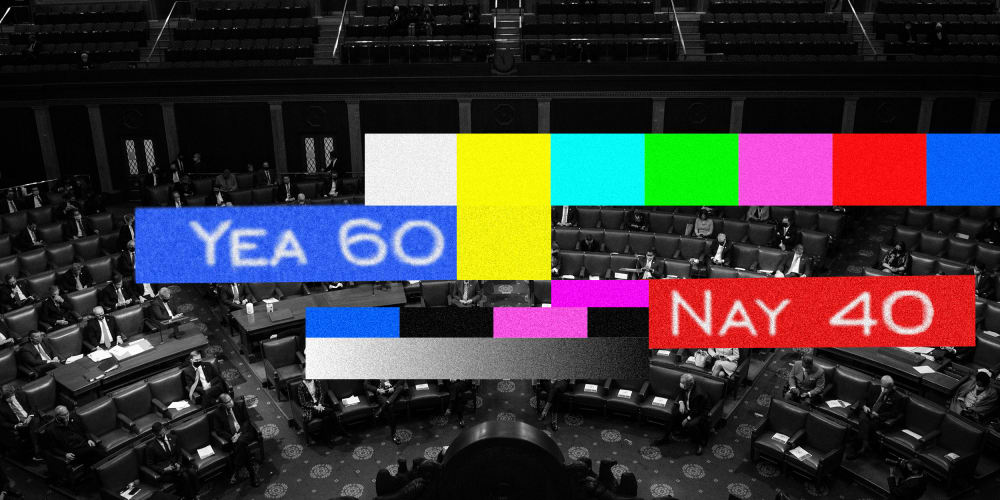One of the foremost arguments that defenders of the filibuster put forward is that it enriches our democracy by forcing senators to debate more. By raising the threshold for passing a bill in the Senate from 51 to 60 votes, the thinking goes, lawmakers are compelled to win over more of the opposition through persuasion and coalition-building — precisely the kind of activity appropriate for the “world’s greatest deliberative body”
But a new study says the data does not bear out that claim. According to a working paper from Shu Fu, a postdoctoral teaching fellow at the University of Chicago, and William Howell, the chair of the political science department at the University of Chicago, historical data shows that the filibuster largely has no effect on debate — and to the extent that it does, it appears to dampen it rather than invigorate it.
The filibuster has not even fulfilled its vaunted role as a stimulator for more robust debate and discussion.
The findings deal yet another blow to a legislative rule whose abolition is long overdue. For many years now we’ve seen the filibuster become a tool for jamming up the gears of government, most notably by Republicans, and laying waste to the basic democratic principle of majority rule. This new set of data illustrates that since the late 19th century, the filibuster has not even fulfilled its vaunted role as a stimulator for more robust debate and discussion.
Fu and Howell’s study involves taking a few different measures of senate debate, including the total volume of words that are said by each lawmaker in a congressional session, debate about judicial nominees, and how much time is spent discussing and debating the formation of landmark laws like Obamacare. They then considered the differences in debate before and after major changes to the deployment of the filibuster, such as when filibuster rules changed (in 1975 the filibuster threshold dropped from 67 senators to 60) or norms changed (like when then Sen. Minority Leader Mitch McConnell began to apply the filibuster to all kinds of legislation during the Obama era) and uses the House as a control group. The idea is that changes in the strength of the filibuster should produce discernible changes in how much lawmakers talk about legislative work.
Howell told me in a phone conversation that nobody has ever tested the claim that the senate fosters debate and discussion — and what he found was that the claim simply didn’t hold up. “For the most part, we don’t see any differences immediately before and immediately after a rule change,” Howell explained. “And where differences are observed, they tend to point in the opposite direction of where advocates of the filibuster claim.”

One example of the filibuster having a negative effect on congressional debate: After McConnell initiated an aggressive ramp-up in filibuster use around 2007, there was a 14 percent decline on average in speeches given by senators when comparing the legislative sessions before and after that change. Three sessions before and after, there’s a 28 percent decline. But Howell also noted that zooming out even further — four or five legislative sessions around the norm — the decline becomes statistically insignificant.












